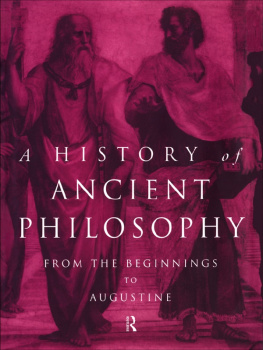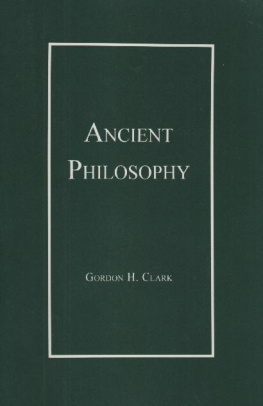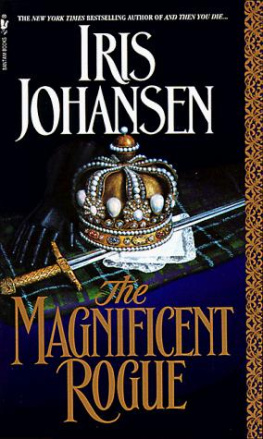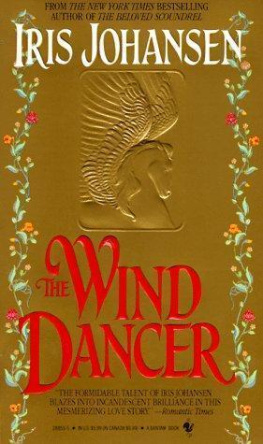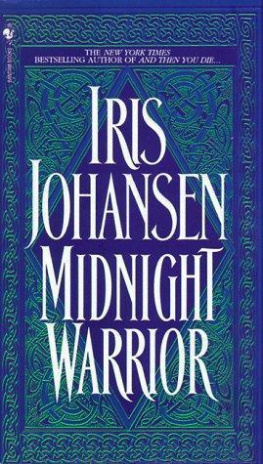Johansen Karsten Friis - A History of Ancient Philosophy
Here you can read online Johansen Karsten Friis - A History of Ancient Philosophy full text of the book (entire story) in english for free. Download pdf and epub, get meaning, cover and reviews about this ebook. year: 2011, publisher: Routledge, genre: Religion. Description of the work, (preface) as well as reviews are available. Best literature library LitArk.com created for fans of good reading and offers a wide selection of genres:
Romance novel
Science fiction
Adventure
Detective
Science
History
Home and family
Prose
Art
Politics
Computer
Non-fiction
Religion
Business
Children
Humor
Choose a favorite category and find really read worthwhile books. Enjoy immersion in the world of imagination, feel the emotions of the characters or learn something new for yourself, make an fascinating discovery.
- Book:A History of Ancient Philosophy
- Author:
- Publisher:Routledge
- Genre:
- Year:2011
- Rating:5 / 5
- Favourites:Add to favourites
- Your mark:
- 100
- 1
- 2
- 3
- 4
- 5
A History of Ancient Philosophy: summary, description and annotation
We offer to read an annotation, description, summary or preface (depends on what the author of the book "A History of Ancient Philosophy" wrote himself). If you haven't found the necessary information about the book — write in the comments, we will try to find it.
A History of Ancient Philosophy — read online for free the complete book (whole text) full work
Below is the text of the book, divided by pages. System saving the place of the last page read, allows you to conveniently read the book "A History of Ancient Philosophy" online for free, without having to search again every time where you left off. Put a bookmark, and you can go to the page where you finished reading at any time.
Font size:
Interval:
Bookmark:

First published in English 1998
by Routledge
11 New Fetter Lane, London EC4P 4EE
This edition published in the Taylor & Francis e-Library, 2005.
To purchase your own copy of this or any of Taylor & Francis or Routledges collection of thousands of eBooks please go to www.eBookstore.tandf.co.uk.
Simultaneously published in the USA and Canada
by Routledge
29 West 35th Street, New York, NY 10001
First published in Danish 1991 as Den Europsiske Filosofis Historie : Antikken by Nyt Nordisk Forlag Arnold Busck, Copenhagen
1991 Nyt Nordisk Forlag Arnold Busck A/S
English translation 1998 Nyt Nordisk Forlag Arnold Busck A/S
The right of Karsten Friis Johansen to be identified as the Author of this Work has been asserted by him in accordance with the Copyright, Designs and Patents Act 1988
All rights reserved. No part of this book may be reprinted or reproduced or utilized in any form or by any electronic, mechanical, or other means, now known or hereafter invented, including photocopying and recording, or in any information storage or retrieval system, without permission in writing from the publishers.
British Library Cataloguing in Publication Data
A catalogue record for this book is available from the British Library
Library of Congress Cataloguing in Publication Data
Friis Johansen K. (Karsten)
[Den Europsiske Filosofis Historie. Antikken. Danish]
A history of ancient philosophy: from the beginnings to Augustine Karsten Friis Johansen. Translated by Henrik Rosenmeier.
Includes bibliographical references and index.
1. Philosophy: AncientHistory. I. Title
B115.D36F7513 1998
F180dc 21 9745072 CIP
ISBN 0-203-97980-X Master e-book ISBN
ISBN 0-415-12738-6 (Print Edition)
This book was awarded the Amalienborg Prize by Her Majesty the Queen of Denmark and His Royal Highness the Prince Consort.
No serious person will ever commit serious matters to writing.
(Plato)
The present work spans the history of ancient philosophy from the earliest Greek thinkers to Augustine. It was first published in Danish in 1991, and the English edition does not differ in any essential respect from the original version.
The book addresses itself to readers who are principally interested in surveying the first millennium of Western thought as well as to those chiefly seeking direct access to the primary sources. To meet the requirements of the latter a detailed reference apparatus is integrated in the text.
The aim has been to link the respective parts of the book in such a manner that an overall picture emerges in which there is emphasis on the many interrelationships between different trends. The underlying supposition, that ancient thought constitutes a coherent whole, albeit one with many variations, does of course have its limitations; it represents but one writers views and presuppositions.
The book was inspired in equal measure by Anglo-Saxon and continental scholarship. In addition, I have had the benefit of discussions with Danish colleagues and friends over many years. I beg them all to accept my sincere thanks.
With admirable patience and engagement Henrik Rosenmeier, the translator, brought his expertise and stylistic sensibility to bear on the work. The book was a difficult one to translate, and without Dr Rosenmeiers great contribution it is unlikely that the plans for translation could have been realized. We worked in close collaborationone that I take pleasure in remembering. Johnny Christensen, Troels Engberg-Pedersen, and Fritz Saaby Pedersen most kindly read individual sections, mainly with an eye to terminology. Major portions of the book were reviewed by Eric Jacobsen from a stylistic and linguistic viewpoint. The invaluable assistance of all these persons is gratefully acknowledged.
The Danish edition was published by Nyt Nordisk Forlag Arnold Busck, and I am pleased to acknowledge my indebtedness to Sren Hansen for his unflagging support.
Special thanks are extended to Malcolm Schofield of Cambridge University who recommended the book to Routledge for publication of the English edition.
I am also indebted to Routledge for undertaking to publish this book, to Richard Stoneman, and to the two anonymous readers who provided useful comments on several chapters. Of course I alone remain responsible for any errors and shortcomings.
The translation was made possible by grants from the Carlsberg Foundation and the Velux Foundation, and I am most grateful for their generous support.
Last but not least I should like to express my sincere and respectful gratitude to Her Majesty the Queen and His Royal Highness the Prince Consort who awarded the Amalienborg Prize to the original Danish version as a work in the humanities written in Danish and deserving of international dissemination.
Karsten Friis Johansen
Copenhagen
October 1997
Ancient philosophy, the basis of Western thought and science, evolved in the course of almost one thousand years. In the sixth century BC that process was begun in which we still find ourselves: the attempt at a rational explanation of the world and of mans place in the world.
The earliest perioduntil just past the middle of the fifth century BCwas economically, socially and politically a period of crises, but at the same time a period which opened up for foreign influences provoking thinkers and poets to seek for some order behind all changes, an order that could be grasped by human thought. With the victorious conclusion of the Persian wars, Athens became the political and cultural centre of the Greek world. Still, the owls of Minerva do not take flight until dusk. Socrates work was carried out during a period of decline, and Plato and Aristotle were not the ideologists of democratic, imperialist Athens. They brought earlier thought to a conclusion, created a conceptual apparatus that has left its impress on all subsequent Western philosophy, and assigned man a place in society and the cosmos at the moment when the era of greatness had been lost irretrievably, and the city state was in decay. The old Greek world finally lay in ruins when Alexander the Great forged his world empire. From then on political decisions were made by distant monarchs, and individual man was left to find his own proper place. Still, new philosophical systems were formulated Epicureanism and Stoicismand philosophy was still a universal explanation of the world; but the emphasis was on ethics, and it was in this period that philosophy and science began to pursue their own paths.
By the second century BC the Romans had become the rulers of the entire Mediterranean area. They adopted Hellenistic culture and with it Greek philosophy. The old philosophical schools were continued in Roman times and culminated during the late Empire (from the third century AD) in Neoplatonism. But times had changed. Religious movements from the Orient appealed to a far wider circle than philosophy ever did, and with the advent of Christianity a confrontation and cultural fusion took place, which are unparalleled in our history. Antiquity was over, but its thought survived.
There are breaks during this long evolutionbut also continuity. Each period had its own features, but there was also recourse to the tradition, which in a sense never became the past. The fundamental idea that originally made philosophy an especial mode of interpreting the world was never left behind: man can understand the world as a whole and thereby know himself. Ancient thought always aimed at an all-comprehending view even when moving to the limits of rationality. The universal aim was never abandoned, not even as the several separate disciplines gradually evolved. And confidence in the possibilities of human thought was maintained, even when reflections began about the basis of knowledge. The world was considered a rational, orderly whole, and in many cases the cosmic order was taken to be moral order as well.
Font size:
Interval:
Bookmark:
Similar books «A History of Ancient Philosophy»
Look at similar books to A History of Ancient Philosophy. We have selected literature similar in name and meaning in the hope of providing readers with more options to find new, interesting, not yet read works.
Discussion, reviews of the book A History of Ancient Philosophy and just readers' own opinions. Leave your comments, write what you think about the work, its meaning or the main characters. Specify what exactly you liked and what you didn't like, and why you think so.

